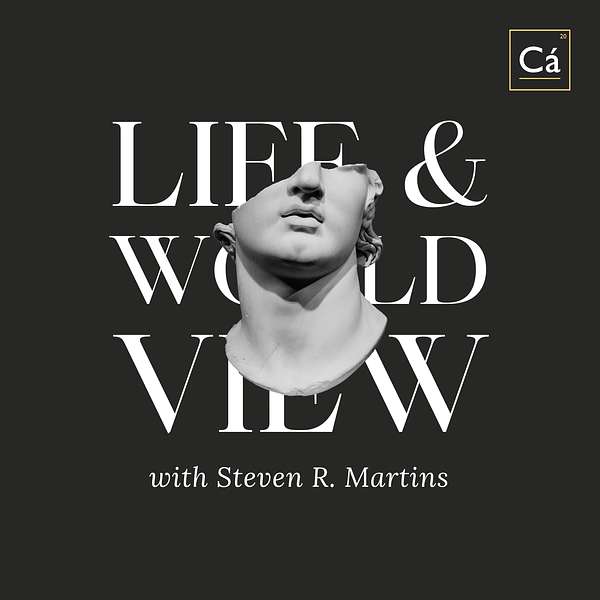
Life & Worldview
Life & Worldview is a podcast of the Cántaro Institute, a weekly verse-by-verse exposition and commentary of God's Word by Institute director Steven R. Martins.
Life & Worldview
06. Always Ready (1 Pet. 3:15)
Use Left/Right to seek, Home/End to jump to start or end. Hold shift to jump forward or backward.
In this episode of Life & Worldview, S. R. Martins encourages listeners to always be ready to share the hope of the gospel with others (1 Peter 3:15). Are you ready?
Follow the Cantaro Institute:
X | Instagram | Facebook | Youtube
For more information, go to cantaroinstitute.org.
For books on worldview, philosophy and theology, go to cantaroinstitute.store.
Life and Worldview with Steven Martins: Always Ready
One of the things I’ve always appreciated about history is how it reminds us of that biblical truth that nothing is new under the sun, and that includes the deepest questions of life.
Will Durant was a man who rubbed shoulders with the world’s intellectual elite. As a historian, he was well-learned. But one autumn afternoon in 1930, while raking leaves in Lake Hill, New York, a well-dressed man approached him. He told Durant that he was ready to end his life. But before he did, he wanted to know: What is the meaning of life? Why should I keep living?
Durant tried to respond. He gave him a few reasons. But after the man left, he was left haunted. He was haunted—because deep down, he knew he had no answer that could satisfy.
Now picture yourself in that moment. What would you say if it were you out there raking the leaves?
The apostle Peter, writing to Christians scattered throughout the Roman provinces—Christians living in a culture not unlike ours—gave this instruction:
“But in your hearts revere Christ as Lord. Always be prepared to give an answer to everyone who asks you to give the reason for the hope that you have. But do this with gentleness and respect.” (1 Peter 3:15)
Peter doesn’t begin with intellectual preparation, as important as that may be, but with reverence. “In your hearts,” Peter says. That is, in the very core of who you are—honour Christ as holy, as Lord. And this kind of reverence is not merely “private.” It expresses itself in how we live, how we speak, and how we respond. The Christian’s life looks different because Christ really is Lord over our life.
And that difference—when it’s real—provokes questions.
Why do you live the way you do?
Why don’t you take part in what everyone else does?
Why do you have this sense of peace, or joy, or hope—even in a chaotic world?
Peter calls it “the hope that is in you.” And hope, biblically speaking, is not wishful thinking—it’s rooted confidence in the finished work of Jesus Christ. Hope in the One who not only rescues us from sin, but who gives meaning and direction to all of life. Not just to our souls, but to our stories, our bodies, our vocations—our everything.
But Peter also tells us how to answer. We are to answer “with gentleness and respect.” Not with pride. Not with smugness. But with the humility that comes from knowing we were once blind too. That apart from grace, we’d still be lost. And that even now, we’re sustained not by strength, but by mercy.
That kind of humility should flow into our posture, into the way we carry conversations, into our witness. Our answers have to reflect the same gospel we’re proclaiming, the same gospel we’re living.
So let me leave you with this: If someone approached you today and asked you, “Why do you believe? Why is life worth living?”—would you be ready to give an answer?
And if you’re not sure—if you have more questions than answers—let that move you closer to Christ. Ask. Seek. Speak with someone. Because this gospel we confess—it’s not shallow, it’s not a crutch, and it’s certainly not wishful thinking. It’s the truth that restores our brokenness and brings meaning to all of life.
And that’s something worth being always ready to share.